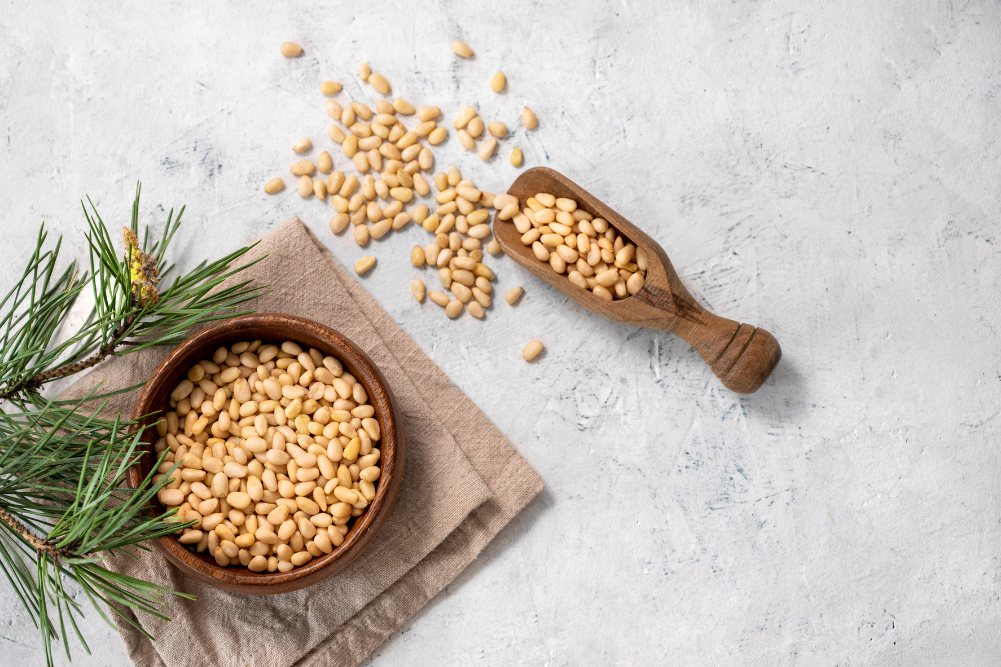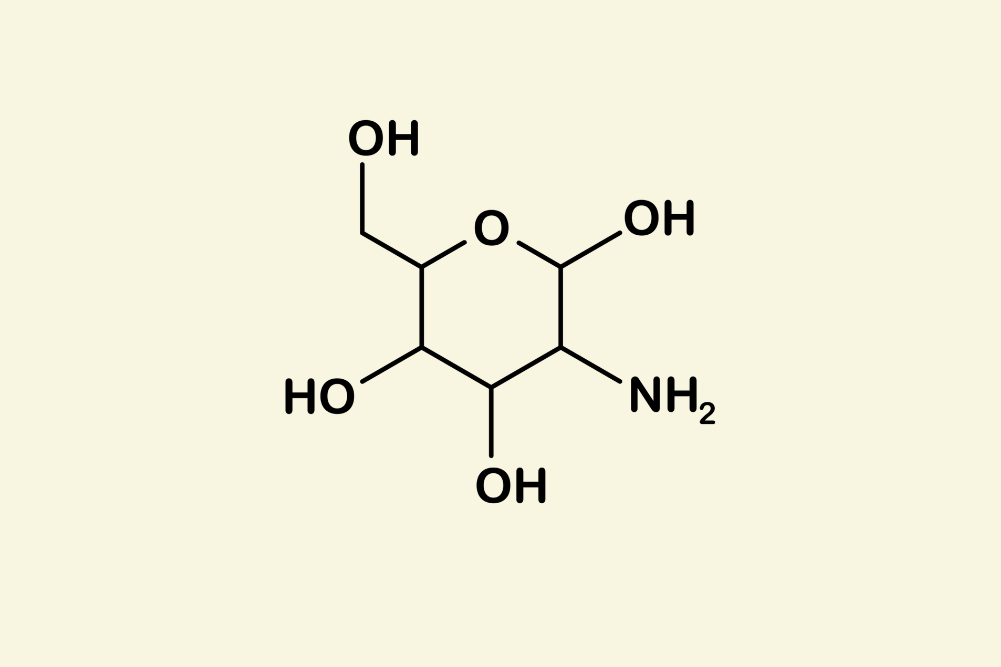Ageing Peacefully
Antioxidants play a critical role in slowing down the ageing process by shielding our cells from oxidative stress, a key factor in premature ageing, chronic inflammation and the development of disease. Antioxidants also support radiant skin, brain and heart health, and protect the energy-producing mitochondria within our cells.
Environmental and lifestyle factors, including a poor diet, chronic stress, pollution and toxin exposure, can significantly increase the production of free radicals in the body. These unstable molecules drive oxidative stress, damage cells, harm proteins and DNA, and accelerate the ageing process.
One of the most effective strategies to counter free radicals and oxidative stress is through an antioxidant-rich, anti-inflammatory diet. This starts with cutting back or eliminating UPFs, which often contribute to both inflammation and a higher free radical load. Instead, prioritise whole, natural foods rich in antioxidants, phytochemicals and essential nutrients.
Key foods to include in your diet for maximum antioxidant benefit are vibrant fruits such as berries (particularly dark blue and purple berries), pomegranates, citrus fruits, kiwi and tomatoes. Cruciferous vegetables like broccoli, kale and red cabbage are also potent choices. Other valuable additions include turmeric, ginger, green tea, raw cacao and walnuts. For healthy unsaturated fats and beneficial omega-3s, opt for oily wild fish such as salmon and sardines, as well as nutrient-dense, cold-pressed oils such as extra-virgin olive, avocado, flaxseed and macadamia oils. These nutritious foods provide a rich combination of protective compounds that neutralise free radicals, reduce inflammation and support healthy ageing.
Benefits of plant polyphenols
Plant polyphenols are a diverse and powerful group of phytochemicals found in abundance in plant-based foods such as fruits, vegetables, green tea and spices. These compounds are renowned for their potent antioxidant and anti-inflammatory properties, both of which are crucial for optimal health and longevity.
Polyphenols support cardiovascular and brain health, regulate blood sugar and blood pressure and protect against oxidative stress. Long-term consumption of polyphenols has been shown to offer protective benefits against a range of age-related degenerative diseases, including cancer, cardiovascular diseases, muscular atrophy, neurodegenerative disorders and arthritis. Research indicates that these compounds can modulate an ageing immune system and help combat inflammageing.
Polyphenols promote longevity by protecting cells from damage, reducing oxidative stress, regulating inflammation and supporting immune function.
Polyphenols include well-known antioxidants like anthocyanins (found in berries and pomegranates), beta-carotene (in carrots), lycopene (in tomatoes and spinach), resveratrol (in red grapes and berries), quercetin (in apples and onions), curcumin (in turmeric), astaxanthin (from microalgae and salmon), flavonoids (good-quality dark chocolate with 70 per cent or more cocoa), epigallocatechin gallate (EGCG from green tea) and allicin (found in garlic and onions).
The green Mediterranean diet and longevity
Large epidemiological studies have consistently shown that diets like the Mediterranean diet, rich in anti-inflammatory plant foods, are linked to a reduced risk of chronic diseases such as heart disease and are associated with greater longevity.
Recent research highlights the benefits of the green Mediterranean diet for supporting healthy ageing, particularly for the brain. The green Mediterranean diet, which is a plant-based version of the traditional Mediterranean diet, is neuroprotective for age-related brain shrinkage and neuron death.
The green Mediterranean way of eating focuses on antioxidant-dense plant-based foods like berries and fruits, vegetables and green leaves, walnuts and other nuts and seeds, legumes, unprocessed whole grains, extra-virgin olive oil, green tea and oily fish, while keeping meat and dairy consumption low. Its protective benefits are attributed to this vibrant mix of plant-based nutrients that help reduce inflammation and support healthy ageing.
Telomeres, senescent cells and the ageing process
At the end of every chromosome are protective caps called telomeres. Each time a cell divides, its telomeres shorten slightly. Over time, when telomeres become critically short, the cell receives a signal to stop dividing. This is when the cell enters a state of senescence, when cells stop dividing and become “zombie-like” — still alive, but no longer functioning properly or regenerating tissue. The cell then starts releasing inflammatory molecules that damage surrounding tissues, accelerate ageing and contribute to age-related conditions like arthritis, cardiovascular disease and cognitive decline.
Shortened telomeres are one of the key biological triggers for cellular senescence and are considered a hallmark of ageing. While senescence is a natural part of life, too many senescent cells accumulating in the body can disrupt healthy ageing.
Fortunately, emerging research shows we can influence this process. Plant-rich diets abundant in polyphenols and antioxidants, and anti-inflammatory nutrients like those found in the green Mediterranean diet, can help positively affect telomere length and reduce senescent cell burden.
Compounds such as quercetin (found in apples, onions), curcumin (from turmeric), urolithin A (found in pomegranates and berries), EGCG (from green tea) and omega-3s (oily wild salmon and sardines) have been shown to help protect telomeres from oxidative stress and inflammation, which accelerates telomere shortening, and help to clear out senescent cells.
Intermittent fasting, regular physical activity and quality sleep also support cellular cleanup mechanisms like autophagy, which removes damaged components and keeps cells youthful. In contrast, diets high in UPFs, red meat and added sugars have been linked to shorter telomeres.
Eating organic for healthy ageing
Including organic foods in your diet is an excellent way to support powerful, healthy ageing. Organic produce refers to fruits, vegetables and other plant foods grown without the use of synthetic pesticides, herbicides, fertilisers or genetically modifi ed organisms (GMOs).
Organic farming methods focus on building healthy, nutrient-rich soils through practices such as crop rotation, composting and natural fertilisers. Healthier soils not only support stronger, more resilient plants but can also contribute to higher levels of vitamins, minerals and benefi cial phytochemicals in organic produce.
By choosing organic, you minimise exposure to harmful chemicals that can disrupt hormonal balance and increase inflammation, both of which accelerate the ageing process. Synthetic pesticides, herbicides and other chemicals found on conventionally grown produce can also have negative effects on the gut microbiome.
These chemicals, such as glyphosate, are known to interfere with gut bacteria, potentially leading to dysbiosis, a condition where harmful bacteria outnumber the beneficial ones.
Including organic whole foods in your diet ensures you’re nourishing your body with the highest-quality, most nutrient-dense options to support overall health and longevity.
Nurturing a healthy gut microbiome for vibrant ageing
A healthy gut microbiome is crucial for longevity and ageing powerfully. The gut houses trillions of bacteria that help break down food, synthesise essential vitamins, regulate the body’s infl ammatory response and support
immune function. As we age, an imbalance in the gut microbiome, often referred to as dysbiosis, can lead to chronic low-grade infl ammation, weakened immunity and digestive issues, all of which can accelerate the ageing process and increase susceptibility to age- related diseases.
A healthy gut also influences mental health by producing neurotransmitters that impact mood and cognition, which are key factors in maintaining vitality as we age. Prioritising gut health is essential for ageing well and preserving both physical and mental wellbeing over time.
Modern diets high in salty, sugary and fatty processed foods can harm the ageing gut, while fi bre- rich wholesome foods such as fruits, vegetables, seeds, nuts and beans help maintain a balanced and healthy gut microbiome as we age.
Including prebiotics and probiotics in the diet supports a healthy, balanced gut microbiome. The best prebiotic fibre sources include garlic, onions, leeks, asparagus, Jerusalem artichokes, unripe bananas and oats, which nourish beneficial gut bacteria. Probiotic-rich foods, such as yoghurt, kefi r, kimchi, sauerkraut and miso, provide live beneficial bacteria that help maintain gut microbiome balance and enhance digestion.
Key longevity nutrients
Key longevity nutrients and phytochemicals, such as vitamins C and E, omega-3 fatty acids, alpha-lipoic acid, resveratrol, quercetin, urolithin A and astaxanthin, play a powerful role in protecting cells from damage, supporting mitochondrial function and promoting healthy ageing. They help protect cells from age- related decline, combating oxidative stress, reducing inflammation, supporting brain and heart health, and enhancing mitochondrial function. While these compounds are naturally found in a wide range of whole, nutrient-dense foods, supplementation is benefi cial, particularly as we age or during times of increased physical or emotional stress, to ensure optimal levels are maintained for longevity and vitality.
Vitamin C: Vitamin C is a powerful antioxidant crucial for collagen synthesis, wound healing and immune defence. It neutralises free radicals, regenerates other antioxidants like vitamin E and protects against oxidative stress that accelerates ageing. Vitamin C also reduces inflammation, improves skin elasticity, supports vascular health and boosts energy by enhancing iron absorption. Regular intake helps maintain skin health, immunity and overall vitality as we age. Some delicious ways to incorporate more vitamin C-rich foods in the diet include topping granola and yoghurt with kiwi, raspberries and blueberries. For your next salad, add a burst of flavour with cherry tomatoes, red capsicum, orange slices, grapes, pomegranate arils or blackberries, tossed through a dark-green leafy salad. Supplement with vitamin C at a dosage of 2g per day.
Vitamin E: Vitamin E is a fat-soluble antioxidant that protects cell membranes from oxidative damage and reduces inflammation. Vitamin E is especially benefi cial for skin health, aiding in maintaining skin hydration and protecting from UV damage, and helping to mitigate signs of ageing in the skin. Vitamin E can be taken as a supplement (look for natural vitamin E as d-alpha- tocopherol or natural mixed tocopherols) and applied topically as a cream or oil, but the most effective way to obtain vitamin E is through the diet by including a variety of nuts, seeds, avocado and olive oil. Nutritious ways to boost your vitamin E intake include snacking on a handful of raw almonds, spreading almond, hazelnut or sunflower butter on grainy toast, or adding a spoonful to porridge or smoothies. Toss avocado into salads or enjoy avocado toast topped with mixed seeds. Enhance your meals by adding sunfl ower, pumpkin, chia and hemp seeds to porridge, muesli or salads. Add cashews and sesame seeds to stir-fries and use extra-virgin olive oil in salad dressings or for medium-heat cooking.
Omega-3 fatty acids: Omega-3 fatty acids have powerful anti-inflammatory properties. These essential fats are vital for memory and cognitive health, support a balanced mood and help protect against depression. Omega-3s help lower cholesterol and promote cardiovascular health, reducing the risk of age-related conditions like heart disease. Including more omega-3 fats in the diet is one of the best ways to improve skin health as we age, enhancing skin hydration and elasticity, to help reduce the appearance of fi ne lines and wrinkles. Omega-3s are particularly benefi cial for joint health, helping to reduce inflammation, enhance joint lubrication and maintain fl exibility. Boost your omega-3 intake by enjoying wild salmon a few times a week, adding fl axseed meal to smoothies or porridge, tossing walnuts into salads or muesli, grabbing a small handful of walnuts as a protein-rich snack, or treating yourself to a coconut chia pudding topped with fresh fruit for a nutritious breakfast or dessert. Always choose a high-quality fi sh oil supplement, taking 2–5g daily for optimal benefits.
Alpha-lipoic acid: Alpha-lipoic acid (ALA) is a unique antioxidant that is highly effective in neutralising free radicals and supporting mitochondrial function, enhancing energy production and helping maintain metabolic and neurological health as we age. It also helps regenerate other antioxidants like glutathione and vitamin C. For antioxidant support, supplementing with 300–400mg of ALA daily is recommended. Small amounts of ALA can be found in foods such as spinach, broccoli, tomatoes, peas and organ meats (liver and kidneys).
Resveratrol: Resveratrol is a polyphenol found in red grapes, berries and dark chocolate (with at least 70 per cent cocoa), known for its powerful antioxidant properties. Studies suggest that resveratrol can support heart health, improve brain function and promote longevity by activating genes linked to cellular repair and metabolism. By reducing the eff ects of free radicals and inflammation, resveratrol helps maintain vitality and resilience as we age. Try tossing red grapes and berries through salads, or use them as a topping for granola and yoghurt alongside your other favourite fruits. Frozen grapes make a refreshing snack, while frozen berries are perfect for adding to smoothies and baked goods. When choosing chocolate, look for a good-quality dark variety — the darker, the better, as it’s richer in antioxidants. Starting with dosages ranging from 250–500mg is recommended when supplementing with resveratrol for antioxidant protection.
Quercetin: Quercetin is a potent fl avonoid found in foods like apples, onions and berries, known for its strong antioxidant and anti-infl ammatory properties. It helps combat oxidative stress and supports healthy immune function and cardiovascular health. Some delicious ways to boost your quercetin intake include shredding apples into overnight oats or slicing them into salads. Add red onion to salads, stir-fries, pasta dishes, scrambled eggs or frittatas. Try pickling red onion in apple-cider vinegar with sea salt for a tasty addition to curries, tacos or Buddha bowls. Add caramelised onion to healthy homemade pizzas or burgers for extra fl avour and goodness. Quercetin supplement dosages range from 500–1000mg daily.
Urolithin A: Urolithin A is a postbiotic compound produced by gut bacteria when we consume ellagitannin- rich foods like pomegranates, walnuts, raspberries and strawberries. These nutritious foods can be easily added to salads, porridge, overnight oats, chia puddings or yoghurt. As we age, mitochondrial function declines. Urolithin A boosts mitophagy, a cellular cleanup process that removes damaged mitochondria and promotes. the generation of new, healthy ones, which helps to maintain energy, muscle function and cellular vitality as we age. Due to individual differences in gut microbiome composition, only 40 per cent of individuals can produce urolithin A, so supplementation is recommended to ensure consistent levels and maximise its longevity benefi s. Supplement dosages for urolithin A range from 500–1000mg daily.
Astaxanthin: Astaxanthin is one of the most potent natural antioxidants known, off ering protection against oxidative stress, particularly in the skin, eyes and brain. Astaxanthin’s ability to cross the blood-brain and blood- retinal barriers makes it especially eff ective in reducing neurodegeneration and visual decline, and protecting cognitive function as we age. The best sources of astaxanthin are wild salmon, krill, trout, shrimp, chlorella and microalgae. When supplementing with astaxanthin, the recommended dosage ranges from 4–12mg daily.
By focusing on nourishing our bodies with the right foods, reducing infl ammation and oxidative stress, staying active, managing stress and fostering strong social connections, we can reduce the risk of age-related diseases and increase our chances of living longer, healthier lives. Every small change we make today has the potential to shape a more vibrant future.
References upon request.








